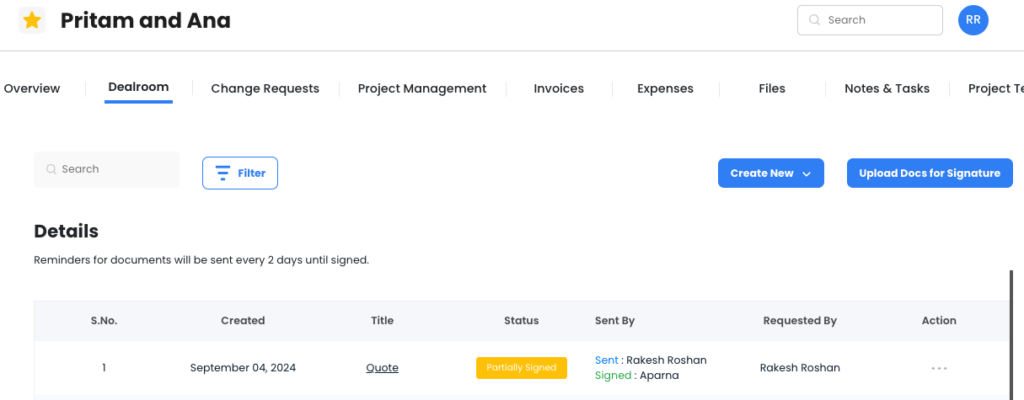Table of Contents

Introduction: The Growing Importance of Technology for Small Law Firms
Small law firms face unique challenges. They need to juggle multiple responsibilities—client management, case handling, compliance, billing, and document storage—all with limited resources and often a small team. Unlike larger firms, small practices don’t always have dedicated departments for administrative tasks, making time management even more critical.
In the digital age, relying solely on manual processes or outdated tools puts small firms at a disadvantage. Clients expect seamless communication, accurate billing, and timely updates on their cases. To meet these demands, small law firms are increasingly turning to specialized software solutions.
This blog dives into the best small law firm software options available today, exploring their features, benefits, and how they can help your practice thrive in an ever-competitive market.
What is Small Law Firm Software?
Small law firm software is a comprehensive suite of digital tools designed to manage and streamline the operations of small legal practices. It integrates features like case management, billing, document storage, and client communication into a single platform, helping small law firms:
- Organize Workflows: Centralize case information, tasks, and deadlines.
- Improve Client Communication: Provide real-time updates and secure messaging.
- Automate Billing: Track time, generate invoices, and manage payments effortlessly.
- Ensure Compliance: Meet legal and ethical requirements with built-in tools.
By simplifying operations, these systems allow attorneys to focus on delivering high-quality legal services.
Key Features of the Best Small Law Firm Software
1. Case Management
Centralize all case-related data, including deadlines, client details, and case notes, in one place. Look for software that offers integration with calendars and reminders to avoid missed deadlines.
2. Billing and Time Tracking
Automate time tracking for billable hours and create professional invoices. Ensure the software supports integrations with payment gateways like Stripe or PayPal for seamless transactions.
3. Document Management
Organize, store, and retrieve case files securely. Advanced features like version control and keyword search ensure quick access to documents.
4. Client Communication
Provide secure client portals for real-time updates and messaging. This improves transparency and enhances the client experience.
5. Workflow Automation
Automate repetitive tasks like task assignments, reminders, and follow-ups. Workflow tools help optimize resource allocation.
6. Compliance and Security
Ensure the software complies with local legal regulations. Role-based access controls and encryption are essential for protecting sensitive data.
7. Scalability and Integration
Choose software that integrates with tools like Microsoft Office, Google Workspace, and accounting platforms. Scalability ensures the software can grow with your firm.

Top Small Law Firm Software Solutions
1. Xora: Affordable and Comprehensive
Overview: Xora is an all-in-one solution designed specifically for small law firms. It combines robust case management tools with automated billing and client communication features.
Key Features:
- Centralized case tracking and management.
- Automated invoicing and payment tracking.
- Secure client portals for communication and document sharing.
- Real-time dashboards for revenue and expense monitoring.
Why Choose Xora?
- User-friendly interface that requires minimal training.
- Scalable features for growing firms.
2. Clio Manage: A Market Leader
Overview: Clio Manage is a cloud-based platform known for its extensive integrations and ease of use.
Key Features:
- Comprehensive case management tools with deadline tracking.
- Integration with over 250 apps, including QuickBooks and Dropbox.
- Time tracking and automated billing.
Best For: Firms looking for scalable, feature-rich software.
3. PracticePanther: Simplified Automation
Overview: PracticePanther is ideal for small firms seeking workflow automation and intuitive tools.
Key Features:
- Customizable invoicing with recurring payment options.
- Secure document storage with advanced sharing options.
- Task and workflow automation for better resource management.
Best For: Firms prioritizing automation and efficiency.
4. MyCase: Client-Focused Efficiency
Overview: MyCase focuses on improving client relationships with its intuitive client portals and collaboration tools.
Key Features:
- Real-time updates through client portals.
- Calendar integration with reminders.
- Automated invoicing and payment collection.
Best For: Firms that prioritize client engagement and satisfaction.
5. Rocket Matter: Data-Driven Insights
Overview: Rocket Matter stands out with its advanced analytics and reporting tools, making it ideal for firms looking for data-driven decision-making.
Key Features:
- Detailed reporting for revenue and performance metrics.
- Customizable workflows for different practice areas.
- Task tracking and time management.
Best For: Firms seeking advanced analytics.
How to Choose the Best Software for Your Small Law Firm
Selecting the right software requires a thorough understanding of your firm’s needs and priorities. Here’s a step-by-step guide:
1. Assess Your Needs
Identify your biggest challenges—whether it’s managing cases, tracking billing, or improving client communication—and prioritize software with the features to address those issues.
2. Compare Features
Evaluate the software’s capabilities in terms of case management, billing, document storage, and workflow automation. Look for tools that meet your specific requirements.
3. Consider Scalability
Choose software that can grow with your firm as you add more clients or team members.
4. Check for Integrations
Ensure compatibility with the tools you already use, such as email platforms, accounting software, and document storage solutions.
5. Evaluate Ease of Use
Select software with an intuitive interface to minimize the learning curve and encourage adoption among your team.
6. Balance Price and Value
Compare pricing plans to ensure the software provides good value for the features offered.

Case Studies: Real-World Success Stories
Case Study 1: Xora Boosts Productivity for a Small Firm
- Challenge: A solo attorney struggled to manage case files and bill clients efficiently.
- Solution: Xora streamlined case tracking and automated invoicing.
- Outcome: Reduced administrative workload by 40% and increased billable hours by 20%.
Case Study 2: Clio Enhances Collaboration for a Growing Firm
- Challenge: Poor communication among team members led to missed deadlines.
- Solution: Clio’s centralized platform improved task assignments and deadline tracking.
- Outcome: Improved team collaboration and reduced missed deadlines by 90%.
Emerging Trends in Small Law Firm Software
1. AI-Driven Insights
AI is being used to predict case outcomes, analyze billing patterns, and optimize workflows.
2. Mobile Accessibility
Mobile apps are becoming a necessity for on-the-go access to case files, schedules, and billing tools.
3. Integrated Ecosystems
Future software will offer seamless integration between case management, billing, and client communication tools.
4. Enhanced Data Security
Stronger encryption and multi-factor authentication are becoming standard features to ensure data protection.
Frequently Asked Questions
1. Is small law firm software expensive?
Not necessarily. Many solutions, like Xora and MyCase, offer affordable pricing tailored to the needs of small firms.
2. Can billing software handle different payment methods?
Yes, most billing software integrates with payment gateways like PayPal, Stripe, and credit cards for seamless transactions.
3. Is training required to use small law firm software?
Most modern software is user-friendly and comes with tutorials or customer support to help with onboarding.
Conclusion: Empower Your Firm with the Best Software
Running a small law firm comes with unique challenges, but the right software can make all the difference. Tools like Xora, Clio Manage, and PracticePanther are specifically designed to meet the needs of small practices, offering features like automated billing, secure document storage, and efficient case management.
Investing in the best small law firm software ensures that your firm operates smoothly, remains competitive, and delivers exceptional client service. Take the next step today and explore the tools that can transform your legal practice.
